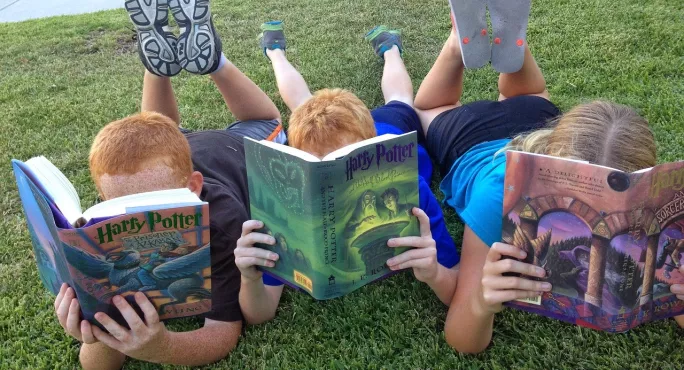- Home
- ‘I want to give students my passion for reading’
‘I want to give students my passion for reading’

I’ve recently had cause to ask myself this question: what the ‘ell did I do during my childhood? Honestly, it’s a mystery.
I wasn’t charmed by nature despite growing up in deepest, darkest Yorkshire. Sport didn’t grab me - it was all jolly hockey sticks and gymkhanas at my school, not my mob’s bag at all. Most of my mates lived a long bus ride away, so casual hanging about didn’t happen. And I definitely didn’t spend my time doing school work. So what the ‘ell did I do? Frankly, with so much time on my hands, I’m stunned that I hadn’t taken up the crack pipe by the time I was 8.
I’d like to say that I found an outlet via the world of literature, wafting about on the moors, clutching a cherished hardback to my vest, but I didn’t. I don’t remember books in the house at all. Which seems odd considering that my parents made enormous sacrifices to pursue an education for their children that they hoped would open doors to a choice of lives. Still, I don’t remember reading.
The reason for this bout of navel-gazing is the final year module I’m studying at the Open University as part of my English degree. The literary world had passed me by until I started last year’s course, which covered about 16 of the big ‘uns (which everyone else seems to have read decades ago). But the course revealed a whole new world of delight and fascination for this late starter. Now I’m full-on besotted with Mary Shelley, intrigued by the Brontë sisters and cautiously dipping my toe in Shakespeare. I spend my beer money on theatre tickets nowadays.
Avoiding reading
This year I’m taking the children’s literature module, and had my first group tutorial last Saturday. A lively gathering of students who, coincidentally, are mostly teachers.
The very first task our teacher gave us was to discuss our most beloved book from childhood. The group came out with all the usuals: Little Women; Famous Five; Black Beauty; The Lion, The Witch and The Wardrobe; Swiss Family Robinson; The Tripods (!).
I racked my brain. The only book I could picture holding in my hands was the Smash Hits Yearbook 1985. It’s seared in my mind as the cover was blessed with an image of my then future husband, Simon Le Bon.
I knew other people’s favourite classic tales existed (Famous Five = posh kids twatting about in a field; Black Beauty = horse bothering; Tripods = camera stands from space), but I just don’t recall excitedly plucking through pages like the rest of them.
This purposeful avoidance continued into early adulthood. Until this summer, I’d never given Harry Potter house room, though, in my defence, it was published in the 90s so I was probably OUT out or suffering from wine-flu.
Is reading really good for you?
After some personal Sherlock Holmes-ing, I think I know why I hadn’t twigged that reading was a thing. In an elongated period of adolescent rebellion (birth to about ten minutes back), I was hostile to anything that I believed was good for me.
I was sick of being told: “Reading is good for you. Reading will fix you. Reading means you will pass exams. Reading means you will earn a good wage. Reading is education.”
So I didn’t read. This isn’t an uncommon reaction; I’ve seen it in my school leavers in functional skills classes for years.
But I had no idea that reading was more than any of those things. That a good story can clomp you slap bang into someone else’s life, or that a certain combination of words can bring out every colour of emotion. That reading is more than the means to an end.
Passing on the passion
It’s hard to persuade young people who don’t have experience of reading for pleasure, that pleasure can indeed be gained from a good book. And “good” is subjective. As far as I’m concerned, if it grabs ‘em, it’s good. Be that The Da Vinci Code, 50 Shades of Grey or a celebrity’s autobiography, it’s a place to start. It’s taken me ages to find out about reading, and the discovery has added to my life. The bigger challenge is how to pass it on.
Sarah Simons works in colleges and adult community education in the East Midlands and is the director of UKFEchat. She tweets @MrsSarahSimons
Keep reading for just £1 per month
You've reached your limit of free articles this month. Subscribe for £1 per month for three months and get:
- Unlimited access to all Tes magazine content
- Exclusive subscriber-only stories
- Award-winning email newsletters



